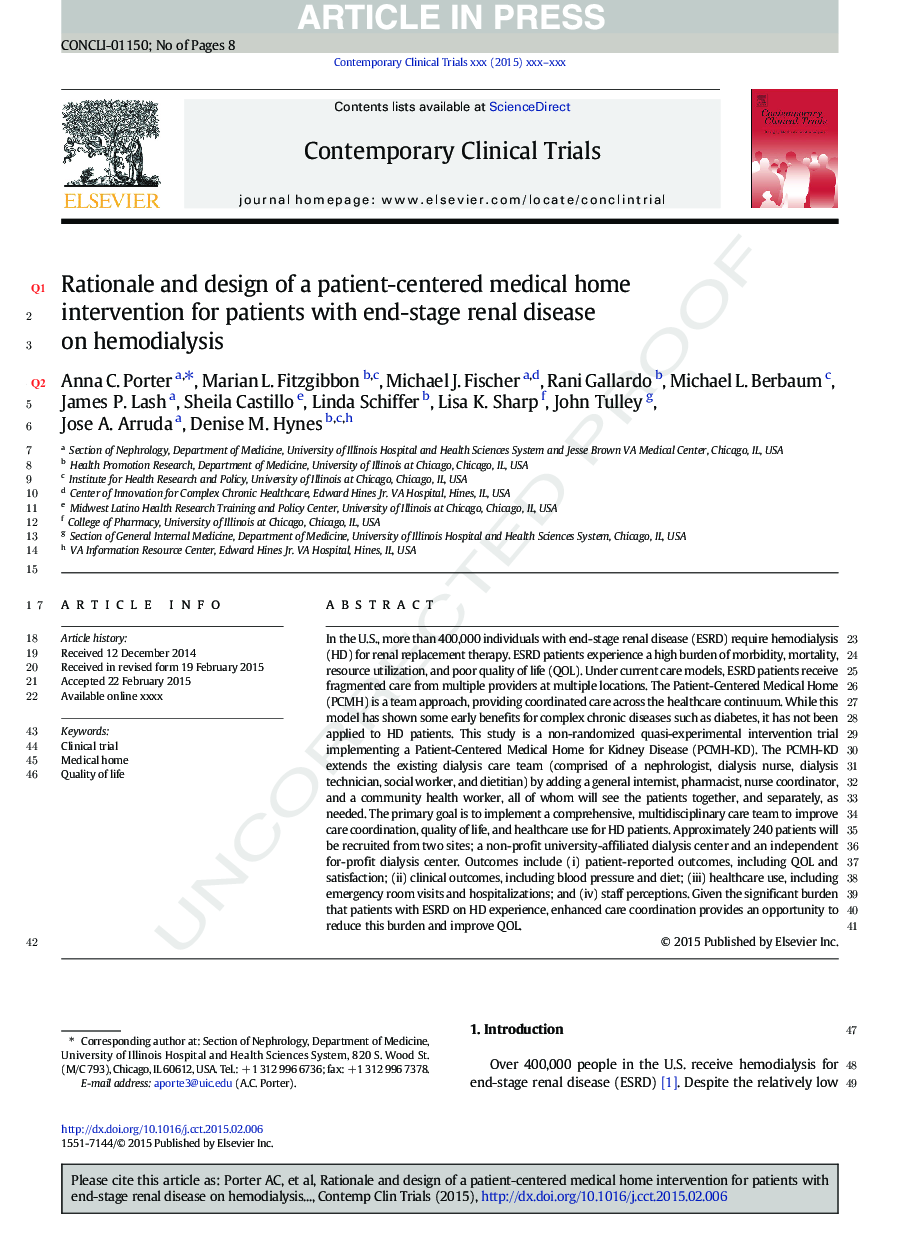| Article ID | Journal | Published Year | Pages | File Type |
|---|---|---|---|---|
| 6150939 | Contemporary Clinical Trials | 2015 | 8 Pages |
Abstract
In the U.S., more than 400,000 individuals with end-stage renal disease (ESRD) require hemodialysis (HD) for renal replacement therapy. ESRD patients experience a high burden of morbidity, mortality, resource utilization, and poor quality of life (QOL). Under current care models, ESRD patients receive fragmented care from multiple providers at multiple locations. The Patient-Centered Medical Home (PCMH) is a team approach, providing coordinated care across the healthcare continuum. While this model has shown some early benefits for complex chronic diseases such as diabetes, it has not been applied to HD patients. This study is a non-randomized quasi-experimental intervention trial implementing a Patient-Centered Medical Home for Kidney Disease (PCMH-KD). The PCMH-KD extends the existing dialysis care team (comprised of a nephrologist, dialysis nurse, dialysis technician, social worker, and dietitian) by adding a general internist, pharmacist, nurse coordinator, and a community health worker, all of whom will see the patients together, and separately, as needed. The primary goal is to implement a comprehensive, multidisciplinary care team to improve care coordination, quality of life, and healthcare use for HD patients. Approximately 240 patients will be recruited from two sites; a non-profit university-affiliated dialysis center and an independent for-profit dialysis center. Outcomes include (i) patient-reported outcomes, including QOL and satisfaction; (ii) clinical outcomes, including blood pressure and diet; (iii) healthcare use, including emergency room visits and hospitalizations; and (iv) staff perceptions. Given the significant burden that patients with ESRD on HD experience, enhanced care coordination provides an opportunity to reduce this burden and improve QOL.
Related Topics
Health Sciences
Medicine and Dentistry
Medicine and Dentistry (General)
Authors
Anna C. Porter, Marian L. Fitzgibbon, Michael J. Fischer, Rani Gallardo, Michael L. Berbaum, James P. Lash, Sheila Castillo, Linda Schiffer, Lisa K. Sharp, John Tulley, Jose A. Arruda, Denise M. Hynes,
